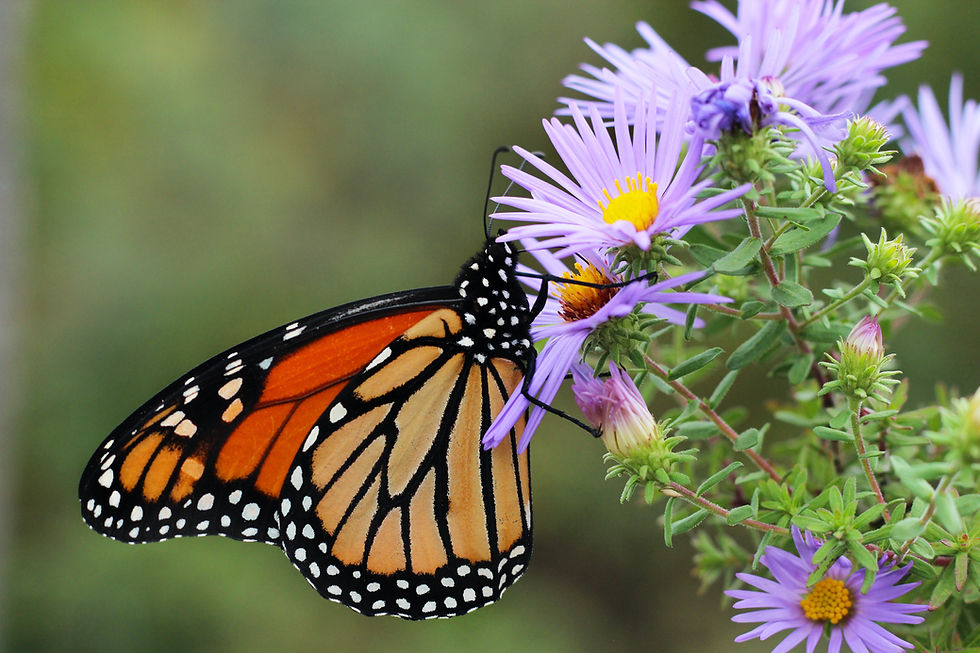Embracing Nature's Partners: Beneficial Insects and Sustainable Market Gardening
- Ryan Meiring

- Jan 11, 2024
- 2 min read
Introduction
In the ever-evolving world of agriculture, market gardeners are increasingly recognizing the profound benefits of working hand in hand with nature. One of the keys to this harmony lies in understanding and appreciating the role of beneficial insects. These tiny allies play a crucial part in enhancing production, improving nutrient density, and offering ecological services that reduce the overall cost of farming. In this blog post, we will explore the symbiotic relationship between market gardens and nature, emphasizing the advantages of embracing and valuing the services these insects provide.

The Marvels of Beneficial Insects
Beneficial insects, such as ladybugs, parasitic wasps, and predatory beetles, are nature's secret weapons against pests that can ravage crops. These tiny defenders act as a natural form of pest control, eliminating harmful insects without the need for chemical interventions. By inviting these insects into the garden, market growers not only protect their crops but also ensure the health and vitality of the ecosystem.

Enhanced Production and Nutrient Density
When market gardens embrace the presence of beneficial insects, they witness a remarkable improvement in production outcomes. The natural balance created by these insects helps maintain healthy plant populations, leading to more robust and abundant yields. Furthermore, the symbiosis between beneficial insects and crops often results in enhanced nutrient density. As pests are kept in check, plants can allocate more resources to nutrient absorption and overall growth, contributing to healthier and more nutrient-rich produce.

Ecological Services: Nature's Contribution to Farming
Beyond pest control, beneficial insects offer a plethora of ecological services that significantly reduce the cost and labor associated with farming. Pollination, for instance, is a critical service provided by bees and other pollinators. By fostering a diverse and insect-friendly environment, market gardens can tap into these natural pollination services, leading to increased fruit and seed production.
Additionally, decomposer insects, like dung beetles, contribute to nutrient cycling by breaking down organic matter, enriching the soil with essential nutrients. This natural fertilization process reduces the need for synthetic fertilizers, cutting costs for market gardeners while maintaining soil health.

Valuing Ecological Services: A Necessary Shift
While the benefits of beneficial insects are clear, assigning a tangible value to these ecological services is often overlooked. Recognizing the economic value of pollination, pest control, and nutrient cycling can level the playing field in the comparison between industrial agriculture and sustainable market gardening.

The Carbon Value of Animals: Balancing the Equation
In the quest for sustainable farming, understanding the carbon value of animals, both domesticated and wild, becomes crucial. Animals contribute to carbon sequestration through their role in nutrient cycling and soil health. This is a stark contrast to the carbon-intensive nature of industrial monoculture practices, such as corn production, which often relies on heavy machinery, synthetic fertilizers, and pesticides.
Conclusion
Embracing the presence of beneficial insects in a market garden is not just a choice; it's a commitment to sustainable and eco-friendly farming practices. By understanding and valuing the ecological services these insects provide, market growers can achieve better production outcomes, nutrient-dense crops, and reduced operational costs. As we navigate the complex landscape of modern agriculture, acknowledging the importance of working with nature rather than against it is a pivotal step towards a more resilient and sustainable food future.










Comments